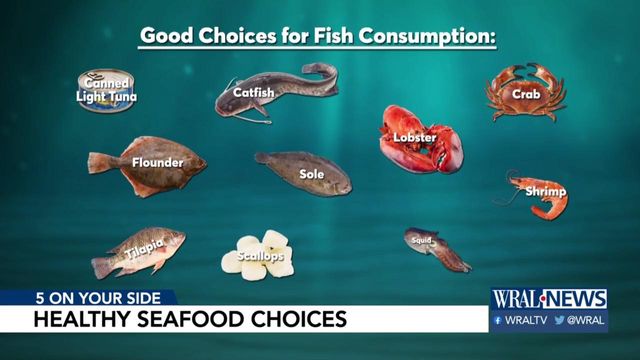5 On Your Side: Fish to eat for heart healthy Omega-3 and fish to avoid
Fish can be loaded with nutrients, but some are better for you than others, and a few might even pose a health risk.
Posted — Updated“Increasing fish and seafood in your diet promotes heart health and will reduce your risk of cardiovascular disease," said Amy Keating, a nutritionist at Consumer Reports. "You should aim for 8 ounces a week, or about two servings.”
According to Consumer Reports, the types of fish that offer the best benefits include anchovies, Atlantic Mackerel, Pacific Chub Mackerel, Herring, oysters, sardines, Trout and wild and Alaskan salmon -- both canned and fresh.
Some choices that have slightly less Omega-3 but are still healthy include canned light tuna, catfish, crab, flounder, sole, lobster, Tilapia, scallops, wild squid and shrimp, especially wild and most U.S. farmed
“One thing to keep in mind is that eating more fish could increase your risk of mercury intake," Keating said.
To get the health benefits of Omega-3, experts say fish oil supplements are not as helpful as eating seafood. Since the cost of fresh seafood is a concern for many, know that anchovies, sardines, canned salmon and light chunk canned tuna are more economical and provide those nutrients.
Related Topics
• Credits
Copyright 2024 by Capitol Broadcasting Company. All rights reserved. This material may not be published, broadcast, rewritten or redistributed.





